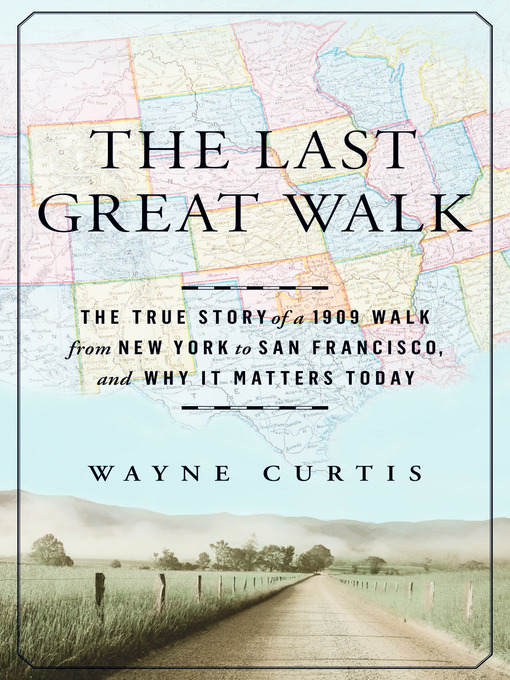
In The Last Great Walk, journalist Wayne Curtis uses the framework of Weston's fascinating and surprising story, and investigates exactly what we lost when we turned away from foot travel, and what we could potentially regain with America's new embrace of pedestrianism. From how our brains and legs evolved to accommodate our ancient traveling needs to the way that American cities have been designed to cater to cars and discourage pedestrians, Curtis guides readers through an engaging, intelligent exploration of how something as simple as the way we get from one place to another continues to shape our health, our environment, and even our national identity.
Not walking, he argues, may be one of the most radical things humans have ever done.
-
Creators
-
Publisher
-
Release date
November 21, 2014 -
Formats
-
Kindle Book
-
OverDrive Read
- ISBN: 9781609613730
-
EPUB ebook
- ISBN: 9781609613730
- File size: 1541 KB
-
-
Accessibility
-
Languages
- English
-
Reviews

Loading
Formats
- Kindle Book
- OverDrive Read
- EPUB ebook
subjects
Languages
- English
Why is availability limited?
×Availability can change throughout the month based on the library's budget. You can still place a hold on the title, and your hold will be automatically filled as soon as the title is available again.
The Kindle Book format for this title is not supported on:
×Read-along ebook
×The OverDrive Read format of this ebook has professional narration that plays while you read in your browser. Learn more here.